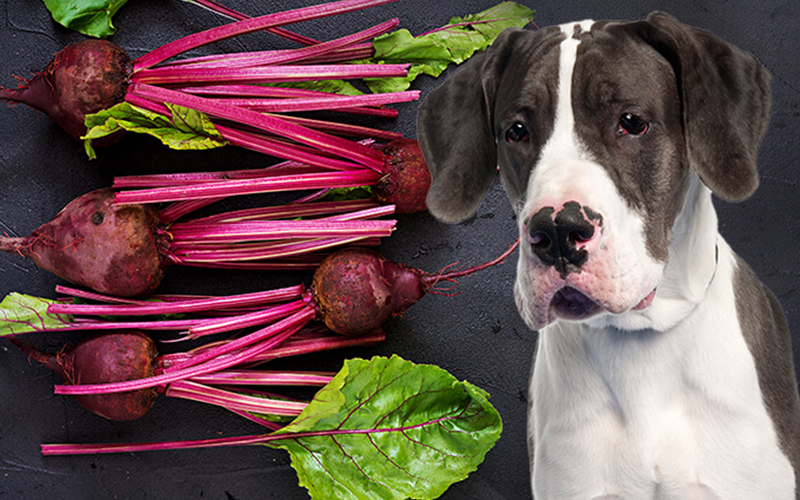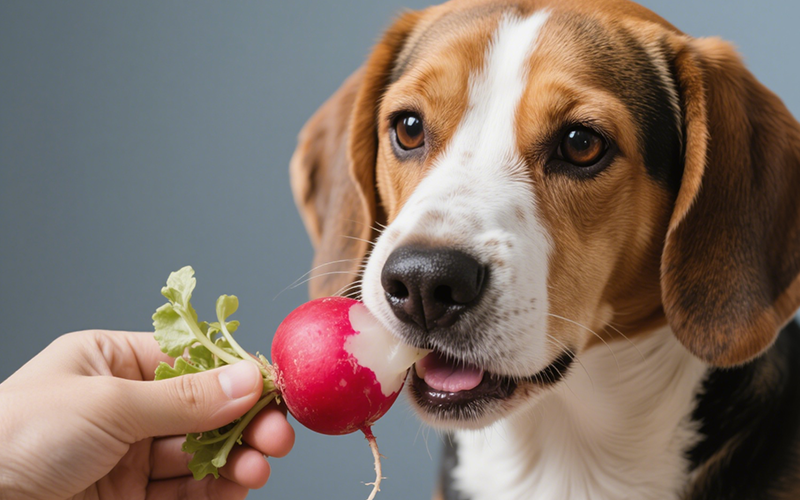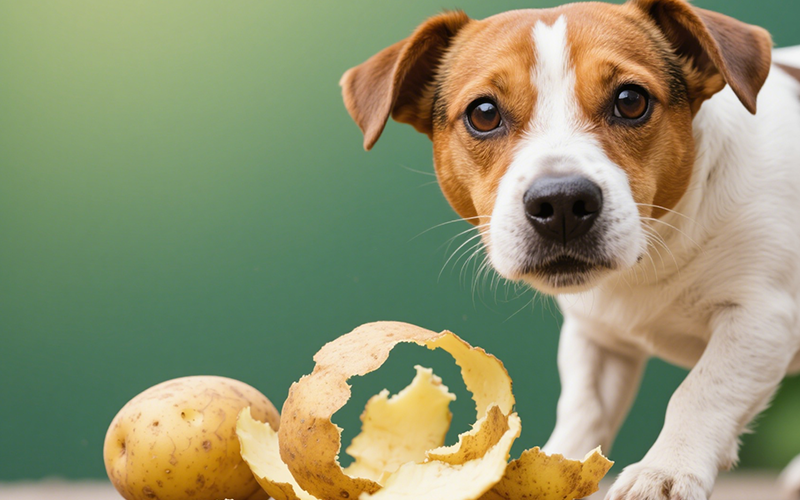Can Dogs Eat Beets? A Guide to Feeding Beets Safely to Your Dog
- 25 Feb 2025 14:01
Beets are a colorful and nutrient-packed vegetable that many people enjoy adding to their diets. But when it comes to your dog, you may wonder: can dogs eat beets? The answer is yes! Beets are generally safe for dogs and can offer several health benefits. However, there are some things to keep in mind when introducing this vibrant root vegetable to your dog’s diet. In this article, we’ll take a look at the benefits and risks of feeding your dog beets and how to serve them safely.

Health Benefits of Beets for Dogs
Rich in NutrientsBeets are packed with important vitamins and minerals that can benefit your dog’s overall health:
Vitamins: Beets are an excellent source of Vitamin C, which supports the immune system and promotes healthy skin. They also contain B vitamins (especially B6), which help with energy production and metabolism.
Minerals: Beets are rich in potassium, which helps regulate blood pressure and supports muscle function, as well as magnesium and iron, both of which are vital for various body functions.
Antioxidants: Beets are high in betacyanin, a potent antioxidant that helps fight inflammation and supports cellular health.
Supports Healthy DigestionBeets are an excellent source of fiber, which can promote healthy digestion and help prevent constipation. The fiber in beets also supports the growth of healthy gut bacteria, which is crucial for your dog’s digestive health. If your dog suffers from mild digestive issues, adding small amounts of cooked or pureed beets to their diet can be beneficial.
DetoxificationThe betalains in beets have detoxifying properties, which can help your dog’s liver eliminate waste and toxins from the body. If your dog’s diet consists of processed or fatty foods, adding beets can support their detoxification processes and promote overall liver health.
Low-Calorie and HydratingBeets are low in calories and contain a lot of water, making them a hydrating and low-calorie snack. This makes them a great option for dogs that are on a diet or looking for a filling, healthy treat without adding extra pounds.
How to Safely Serve Beets to Dogs
While beets are healthy for dogs, there are a few things you need to keep in mind when serving them to ensure they’re safe and beneficial for your pet.
Cook the BeetsRaw beets are tough to digest and can cause an upset stomach or even gastrointestinal issues in some dogs. Always cook beets before serving them to your dog. You can boil, steam, or roast them. Avoid using any seasoning or butter, as these can be harmful to your dog. Simply cook the beets until they’re soft, then slice or chop them into small, manageable pieces.
Serve in ModerationWhile beets are nutritious, they should only be served in moderation. Too much beetroot can lead to digestive upset or diarrhea due to its fiber content. A small portion of beetroot is enough to provide the health benefits without overloading your dog’s digestive system.
Peel the SkinIf you’re feeding your dog raw beets (or cooked with the skin on), make sure to peel them first. The skin can be tough for dogs to chew and digest, so it’s best to remove it before offering it as a treat.
Start SlowIf this is your dog’s first time eating beets, start with a small amount and monitor them for any signs of digestive upset. Some dogs might be more sensitive to new foods than others, so it’s best to introduce beets gradually into their diet.
Pureed BeetsIf your dog is particularly picky or has trouble chewing vegetables, you can puree the beets to make them easier to digest. Pureeing the beets also makes it easier to mix them into your dog’s regular food, adding an extra boost of nutrients.
Potential Risks of Feeding Beets to Dogs
While beets offer numerous benefits, there are some potential risks and considerations to keep in mind:
OxalatesBeets contain oxalates, which are naturally occurring compounds that can bind to calcium and form kidney stones in large amounts. While this is generally not a concern for most dogs, it’s something to be aware of, particularly if your dog has a history of kidney issues or is prone to forming stones. In these cases, it’s best to consult with your veterinarian before feeding beets to your dog.
Beet Juice StainsBeetroot juice has a deep red color, which can stain your dog’s fur or your carpets and furniture. If your dog is prone to making a mess or is eating beets outside, it may be a good idea to monitor them during mealtime to avoid any staining issues.
Too Much FiberBeets are high in fiber, and while fiber is great for digestion in moderate amounts, too much can lead to gas, bloating, or diarrhea in your dog. Stick to small servings and avoid overfeeding beets, especially if your dog isn’t accustomed to eating high-fiber foods.
Allergic ReactionsAlthough rare, some dogs might have allergies to certain vegetables, including beets. If you notice any signs of an allergic reaction after feeding your dog beets, such as itching, swelling, or gastrointestinal distress, stop feeding them beets and consult your vet.
Alternatives to Beets for Dogs
If your dog isn’t a fan of beets or if you’re looking for other healthy veggie options, there are plenty of dog-friendly vegetables you can try. Some great alternatives include:
Carrots: Low in calories and high in fiber, carrots are a crunchy and healthy treat.
Sweet Potatoes: Rich in fiber and packed with vitamins, sweet potatoes are a nutritious choice for dogs.
Green Beans: These are low in calories, high in fiber, and make a great crunchy snack for dogs.
Pumpkin: High in fiber and good for digestive health, pumpkin is another great alternative.
Cucumbers: Hydrating and low in calories, cucumbers are a refreshing treat for your dog.
Should You Use PettureX for Your Dog’s Health?
If you’re ever unsure about whether a specific food, like beets, is right for your dog, or if you have any other concerns about your dog’s diet or health, PettureX is available to help. PettureX offers 24/7 online consultations with professional pet health advisors who can provide guidance tailored to your pet’s needs. Whether you're looking for advice on food or need help addressing any potential health issues, PettureX is there for you and your dog.
Conclusion: Can Dogs Eat Beets?
In conclusion, beets are safe for most dogs and can be a healthy, low-calorie snack when served properly. With their rich nutrient profile, including vitamins, minerals, fiber, and antioxidants, beets can offer several health benefits for your dog, particularly in supporting digestive health and detoxification.
However, always be mindful of portion size and prepare the beets properly to avoid any risks, such as digestive upset or staining. If your dog has any existing health conditions, especially related to kidney health, it’s always best to consult with your veterinarian before introducing beets into their diet.
For personalized advice on your dog’s health, don’t hesitate to reach out to PettureX for expert guidance and 24/7 consultations.
Related

Radish Bites for Your Buddy? A Vet-Reviewed Guide on Whether Dogs Can Eat Radishes
- 22 Apr 2025
Potato Peels for Pooches? Unpeeling the Risks and Facts for Dog Owners
- 22 Apr 2025
Crunchy Curiosity: Can Dogs Safely Snack on Pork Rinds? A Deep Dive
- 21 Apr 2025
Pomegranate Seeds and Pooches: A Deep Dive into Whether Dogs Can Safely Indulge
- 21 Apr 2025
Can Dogs Eat Peaches? Vet Explains Benefits, Cyanide Risks & Safe Serving
- 16 Apr 2025
Can Dogs Eat Mulberries? Vet Explains Safety, Benefits & Potential Risks
- 16 Apr 2025
Can Dogs Eat Mozzarella? Vet Explains the Cheesy Truth (Risks & Benefits)
- 16 Apr 2025
Can Dogs Eat Mango Skin? Vet Explains Why It's a Risky Chew!
- 16 Apr 2025
Can Dogs Eat Maple Syrup? The Sugary Truth & Why Vets Advise Against It
- 16 Apr 2025
Can Dogs Eat Mac n Cheese? Vet Explains Why This Comfort Food Is Unsafe!
- 16 Apr 2025
